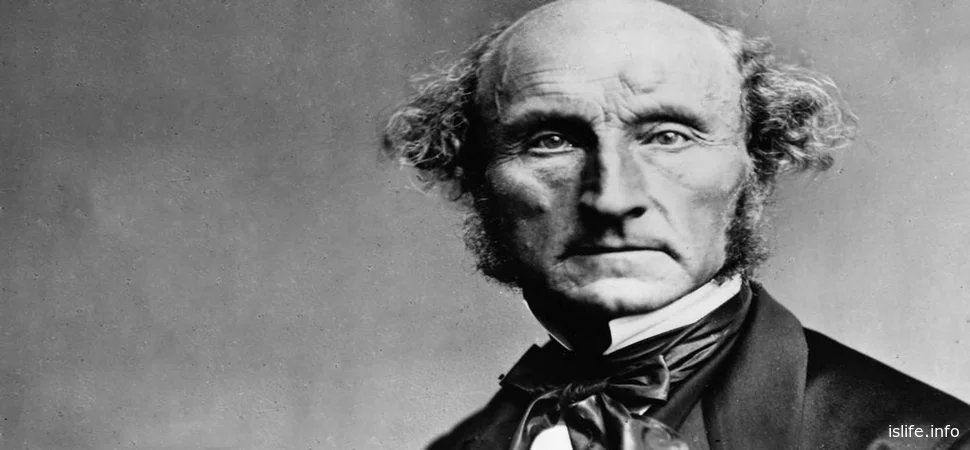In order to understand the current status and concept of women's rights, it is necessary to consider where these phenomena originated and the key figures. One of the greatest contributions to the development of women's rights was played by John Stuart Mill. John Stuart Mill was one of the most prominent British philosophers and economists of the nineteenth century, who left a deep mark on the history of world thought.

↑ A utilitarian approach to arguing for women's rights
First, it is worth briefly explaining what utilitarianism is in ethics, philosophy and politics. Utilitarianism is a philosophical doctrine that says that right actions are those that bring the greatest benefit and happiness to as many people as possible. John Stuart Mill, being a utilitarian, used this principle to argue in favor of women's rights. He argued that if women were given more freedom and opportunity, the entire society would benefit. When women are able to fully realize their abilities through education and work, overall well-being will increase and not only women but also men will live better and happier lives.
His writings had a significant influence on the development of liberalism, utilitarianism, and political theory. Mill stood on the side of individual liberty and justice, and his authority made him a leading figure in the intellectual life of his time. His writings not only shaped debates about individual rights and limits on the power of the state, but also touched on issues previously considered secondary or even marginal.
One such topic was women's rights, which, at the time of Mill's activism, were hardly discussed in serious social circles. It was Mill, through his intellectual weight, who made the subject the object of widespread debate. He was one of the first influential thinkers to call for the expansion of women's rights, including the right to education and political participation. Up until this point, ideas of women's emancipation had been perceived as radical and marginal, but Mill's writings, particularly his book The Subordination of Women, made these issues part of the public dialogue in Britain and beyond, giving impetus to the feminist movement.
↑ Mill's Arguments
In nineteenth-century Britain, the issue of women's status was one of those topics that progressive forces ignored. John Stuart Mill wondered why this was happening. As a good utilitarian, he understood that society benefits when women's intellectual potential is unlocked through education. Beyond the rational benefits, the emancipation of women would bring real improvements in happiness and well-being, taking them from a life of subjugation to a state of mental freedom.
In his manifesto on liberty, Mill emphasizes that after basic needs such as food and clothing, Liberty is the strongest desire of human nature. He argued that centuries of attempts by men to restrict the freedom of women were inevitably doomed to failure because any measure that curtails a person's freedom, unless that person is a threat to society, makes both the oppressed and the oppressor less happy. Despots, whether at home or on the throne, sooner or later encounter this moral law.
↑ The role of women in the welfare of the state
Mill argued that Britain and other developed countries achieved their success not because of established traditions and laws regarding women, but in spite of them, although civilization did not always depend directly on their emancipation. Perhaps civilization would have progressed even faster if women had been given more opportunities and rights, he reflected.

Britain became great in spite of burying women's talents in the ground, not because of it. To call for a change in the legal status of women is one thing, but to demand absolute equality that excludes the power and privilege of one side and limits the rights of the other is a bold statement for 1869. Not to alienate society, Mill observed that no oppressed class sought complete freedom all at once. Women of his time sought only the right to vote and the opportunity to work in professions previously unavailable to them. Today, scholars debate whether his wife Harriet Taylor wrote part of the work on the enslavement of women, but as one of the first women's rights activists in Britain, she had a significant impact on the suffrage movement.
↑ Why is it necessary to promote women's rights?
Mill recognizes that calling for women's equality is a daunting task because views about their role are so deeply ingrained in people's minds that they are difficult to refute with even the strongest arguments. Those who seek to maintain the status quo rely on the power of tradition and custom. Ultimately the present order seems reasonable, but Mill asks the question: what is the basis for the subordination of women to men in the modern era?
He ponders, if women have lost power because men have monopolized force, does this mean that force must always trump right? If past societies had experienced every possible form of government - men ruling over women, women ruling over men, or there being complete equality - we might recognize that one of these forms is most effective. But such experiments, as Mill emphasizes, have never been conducted.
↑ Conclusion
It is worth noting that John Stuart Mill was one of the first influential thinkers to question age-old social orders and openly advocate for equal rights for women. His philosophy of utilitarianism provided the logical basis for arguing that the emancipation of women would benefit all of society. Mill realized that it was not easy to change entrenched traditions and prejudices, but he believed that society would inevitably come to understand the need for equality between the sexes.
His ideas laid the foundation for further discussions about women's rights, and although they were met with resistance, it is thanks to thinkers like Mill that this topic went from being marginalized to one of the key societal issues that continues to be relevant today.
Read also an article on John Mill's views on women's intellectual abilities and the nature of inequality.


